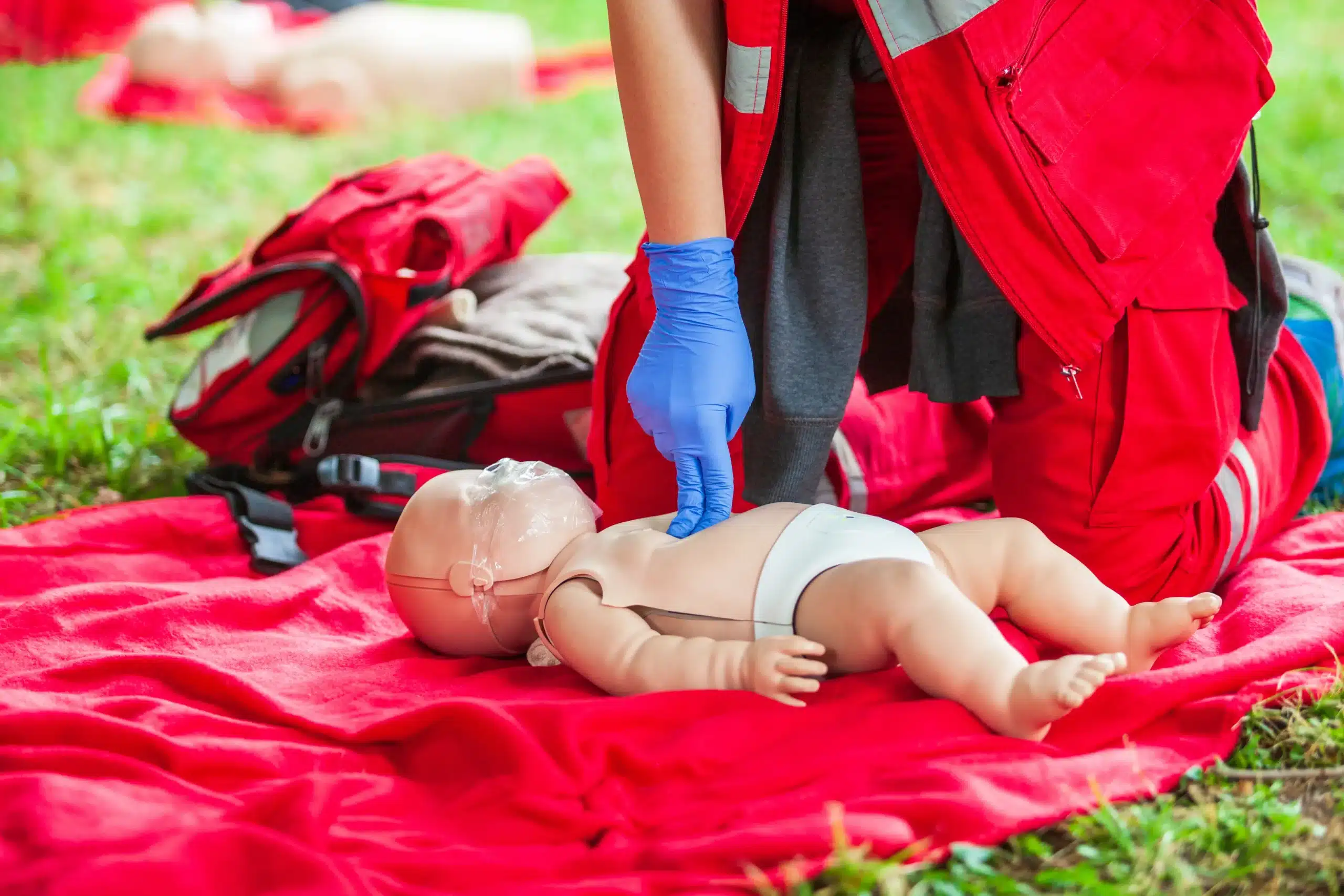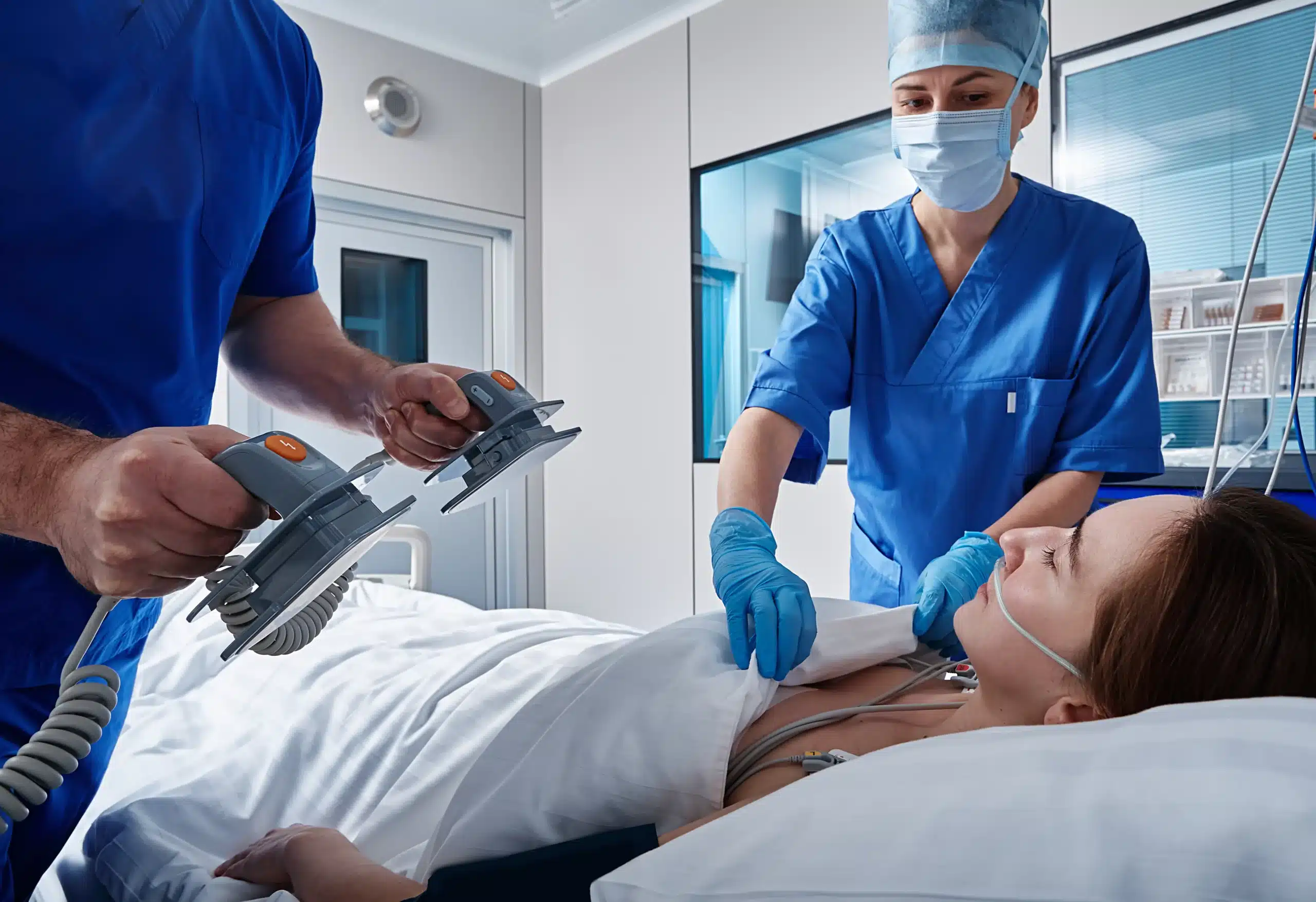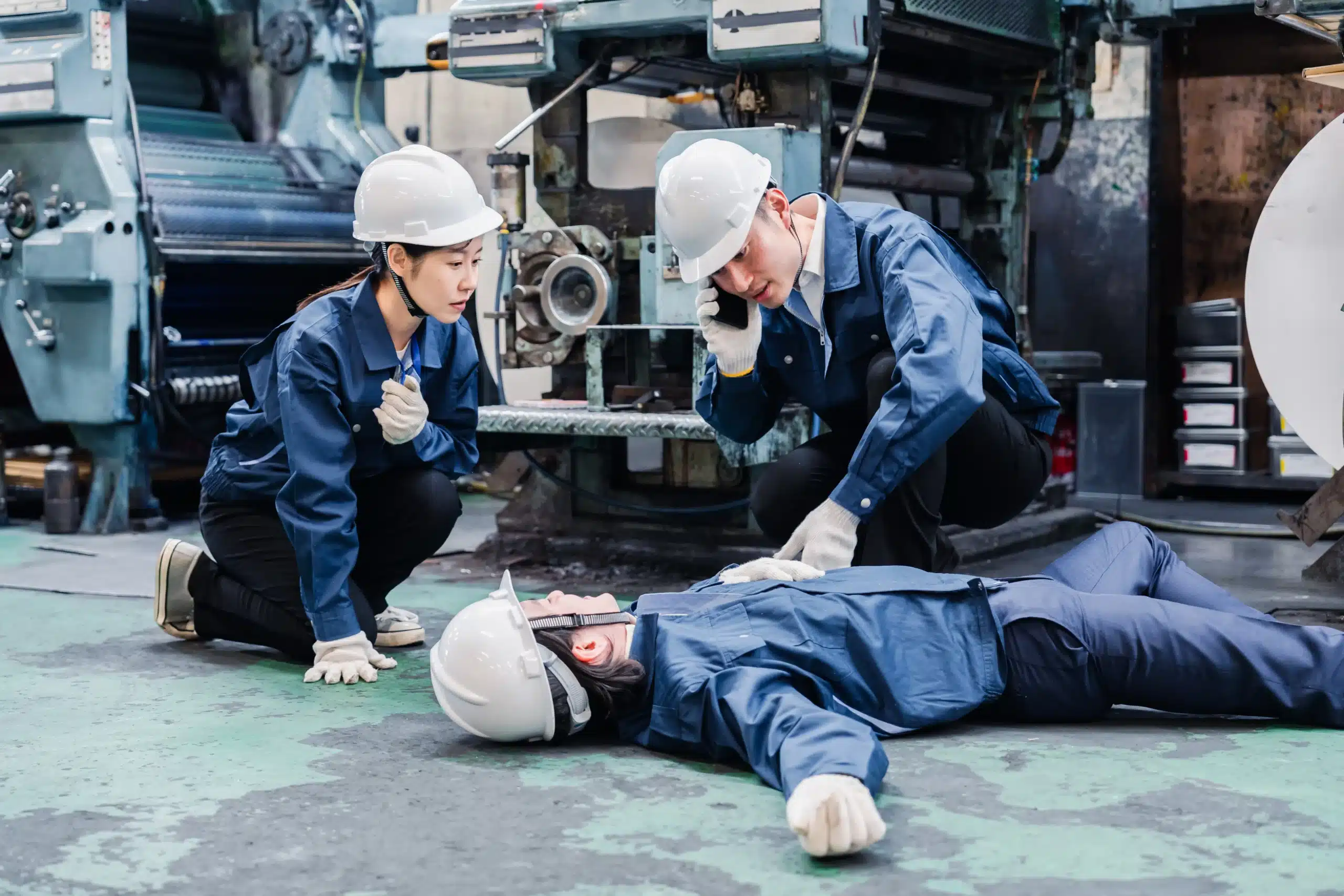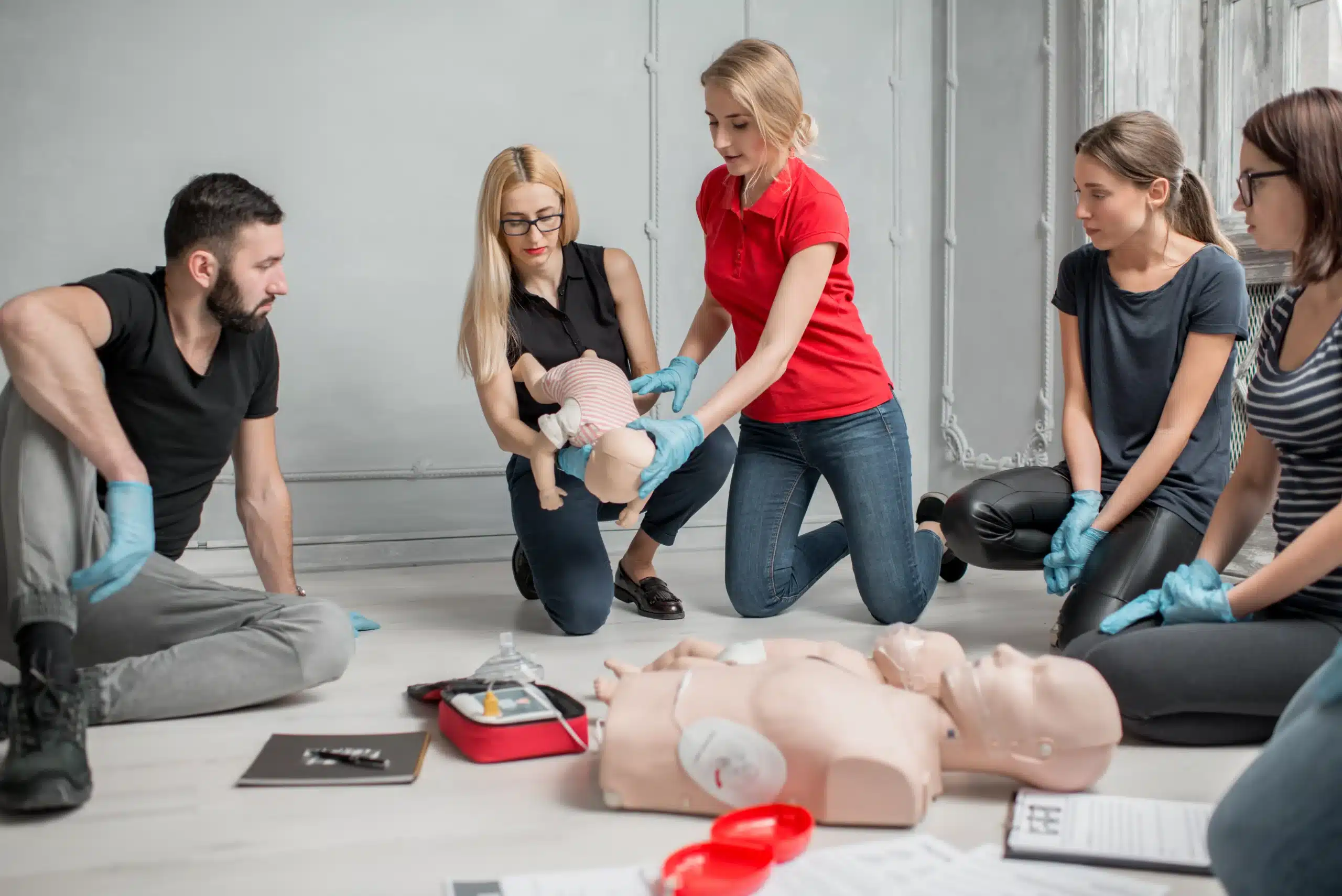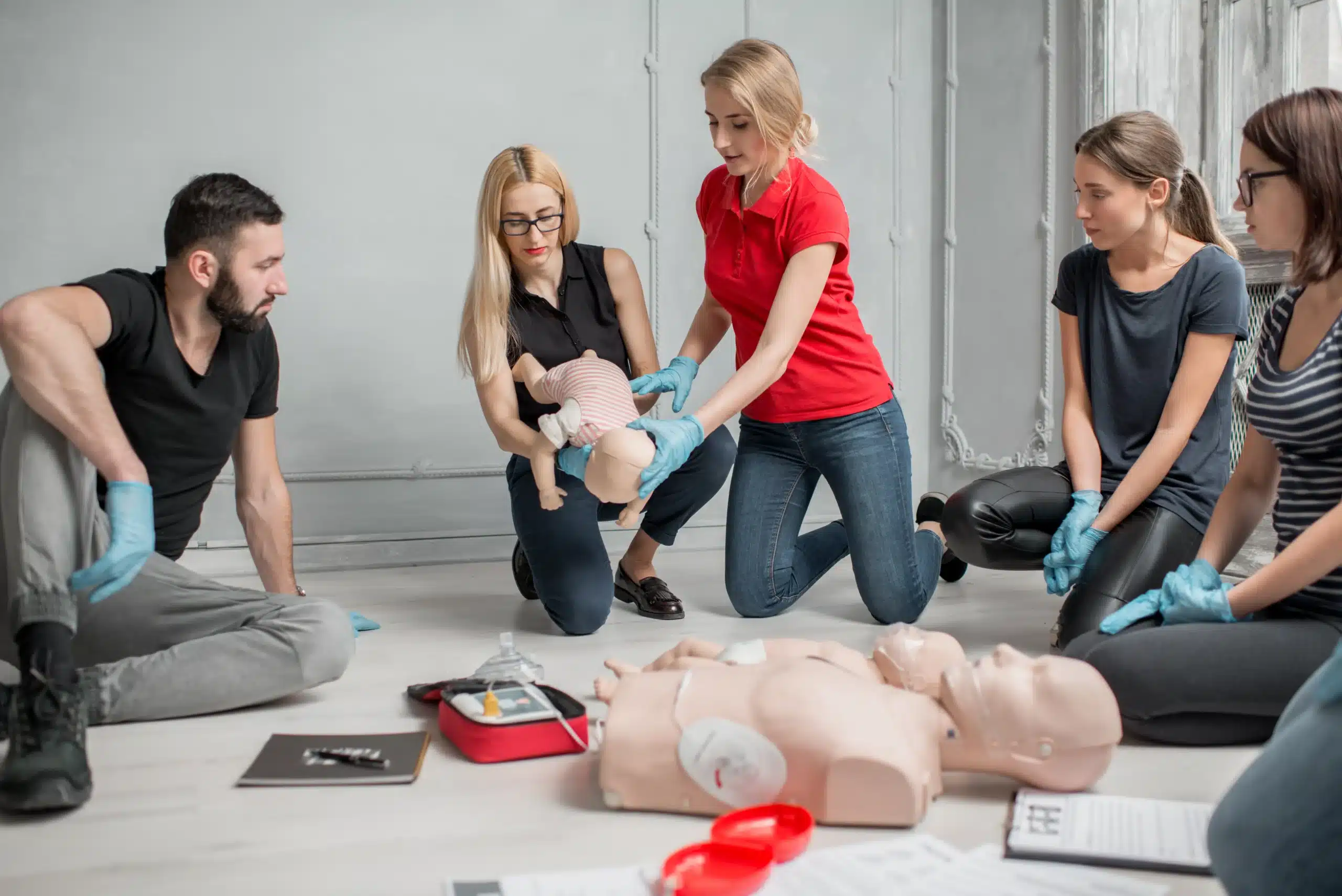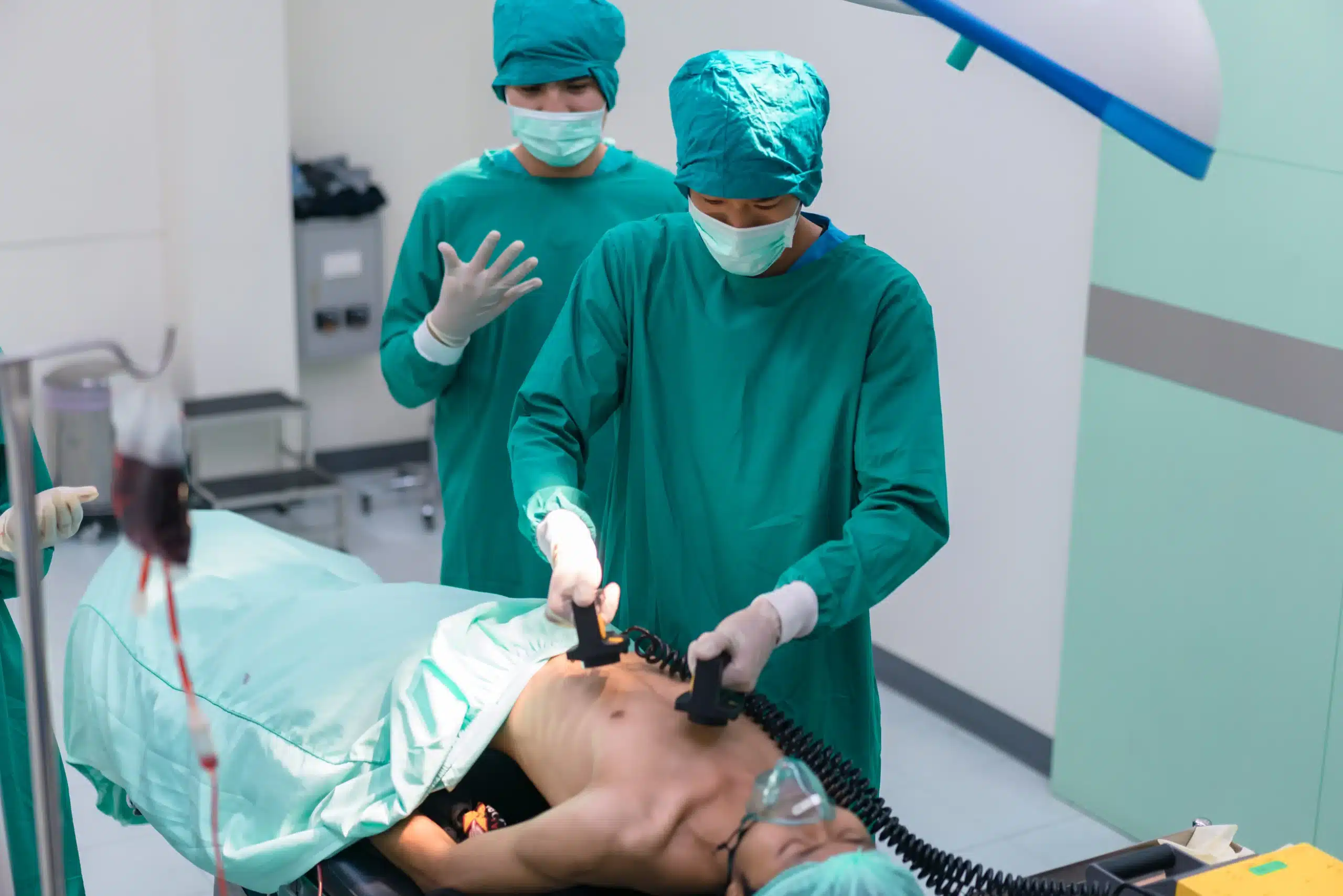Are you a healthcare provider in Santa Clara looking to enhance your emergency response skills? Advanced Cardiac Life Support (ACLS) certification is a crucial credential for managing life-threatening cardiac events. This guide provides a practical roadmap to understanding ACLS, finding the right certification course in Santa Clara, and navigating the process. We’ll explore the benefits of ACLS certification, what to expect during training, and how to choose a reputable provider. We’ll also discuss common challenges and how to overcome them, ensuring you’re well-prepared to provide advanced cardiac life support in Santa Clara and make a real difference in critical situations.
Key Takeaways
- ACLS equips you with advanced life-saving skills: Mastering these skills improves patient outcomes in cardiovascular emergencies. Choose a course that blends online learning with hands-on practice.
- Select your ACLS provider carefully: Consider location, schedule, instructor experience, and AHA certification. Asking potential providers questions clarifies their suitability for your needs.
- Maintain your ACLS skills through recertification: Stay up-to-date on the latest guidelines and best practices by recertifying every two years. This benefits your patients and your career.
What is Advanced Cardiac Life Support (ACLS)?
Advanced Cardiac Life Support (ACLS) is a set of emergency medical guidelines for treating life-threatening heart conditions like irregular heartbeats and cardiac arrest. It goes beyond the fundamentals of Basic Life Support (BLS) and incorporates advanced techniques and medications to manage these critical situations. Think of it as the next level of emergency cardiac care.
ACLS involves a series of coordinated steps that healthcare providers perform simultaneously. These steps include checking the heart rhythm with an EKG, performing chest compressions (CPR), and using a defibrillator to restore a normal heart rhythm. Providers also manage the airway to ensure proper breathing, administer medications through an IV, and sometimes use more advanced medical techniques. It’s a fast-paced, coordinated effort to save lives. Learn more about the importance of ACLS.
ACLS certification is essential for many healthcare professionals because it equips them with the skills to intervene during cardiovascular emergencies. However, it’s important to remember that ACLS certification doesn’t replace a medical license or a provider’s scope of practice. Recertification is typically required every two years to stay up-to-date on the latest guidelines and techniques.
Top ACLS Certification Providers in Santa Clara
Finding the right ACLS certification course can feel overwhelming with so many options. To help you narrow your search, we’ve compiled a list of reputable providers in Santa Clara. Remember to confirm course availability and specific details directly with each provider.
Milpitas CPR Classes
Milpitas CPR Classes offers a variety of American Heart Association courses, including BLS, ACLS, PALS, CPR, and First Aid. Affiliated with Safety Training Seminars, a woman-owned AHA Training Center, they offer courses seven days a week, making scheduling your training convenient. Learn more about their BLS, ACLS, and CPR/First Aid courses on their website. Their convenient location serves Milpitas, San Jose, and Santa Clara.
Santa Clara CPR Classes
Santa Clara CPR Classes prioritizes affordable, high-quality training. They emphasize convenient schedules, a variety of AHA-certified courses, and a low price guarantee. Visit their website for a complete guide to their Santa Clara CPR classes and CPR training in Milpitas.
Safety Training Seminars
Safety Training Seminars, a woman-owned AHA Training Center, offers various AHA certifications, including BLS, ACLS, PALS, CPR, and First Aid. Their courses run seven days a week in Milpitas for added scheduling flexibility.
Bay Area CPR
Bay Area CPR offers American Heart Association CPR, BLS, ACLS, and PALS courses in Santa Clara. Explore their CPR class offerings in Santa Clara on their website.
Stanford Health Care
Stanford Health Care is a leading medical institution. Contact them directly to inquire about their ACLS certification courses and programs. Their medical expertise makes them a potential resource for advanced cardiac life support training.
Santa Clara Valley Medical Center
Santa Clara Valley Medical Center is another prominent medical center. Reach out to them directly to learn about potential ACLS certification opportunities. As a major medical center, they are a likely resource for healthcare professionals seeking advanced training.
What to Expect in an ACLS Course
Getting ACLS certified involves a blend of online learning and hands-on practice. This approach lets you learn the material at your own speed and then demonstrate your skills in person. Let’s break down each part of the process.
Course Structure and Components
ACLS courses in Santa Clara cover essential topics, equipping you with the skills to manage cardiovascular emergencies. You’ll learn to recognize and treat life-threatening heart rhythms, provide advanced airway management, and understand the medications used in these critical situations. While online courses effectively cover theory, most certifying bodies, including the American Heart Association, require an in-person skills assessment for ACLS certification. This combination of online learning and practical application ensures you’re fully prepared.
Duration and Time Commitment
Becoming ACLS certified requires a time investment. Initial certification typically takes about 15 hours, while recertification takes around seven. This includes both the online component and the in-person skills session. The online portion offers flexibility, allowing you to study when it’s convenient. The in-person skills session is usually scheduled separately and takes a few hours.
Online Learning and In-Person Skills Session
The online portion of the ACLS course allows you to learn at your own pace. You can typically complete the online modules for ACLS in three to four hours. Afterward, you’ll schedule an in-person skills session, where you’ll demonstrate your skills using a voice-activated mannequin. While an instructor isn’t present during the test itself, support is available by phone if needed.
Modern Training Methods: RQI Program
For medical professionals, the American Heart Association RQI (Resuscitation Quality Improvement) program offers a modern and efficient path to certification. RQI is a popular choice for healthcare providers in Milpitas seeking their official American Heart Association BLS, ACLS, and PALS cards. This program emphasizes continuous quality improvement and offers a flexible learning experience.
How Much Does ACLS Certification Cost in Santa Clara?
Average Pricing and Value Considerations
ACLS certification in Santa Clara typically costs around $290. This generally includes the online course, in-person skills session, and AHA ACLS certification card. Remember that prices can differ between providers, so comparing options before registering for a course is smart. Some providers highlight their competitive pricing, sometimes advertising the lowest rates in Santa Clara County. Focus on the overall value—what you receive for the cost—to make an informed decision.
Potential Discounts and Promotions
Want to find a good deal on your ACLS certification? Many training centers in Santa Clara offer price matching, so doing your research is worthwhile. Inquire about potential discounts, too. Some providers offer lower prices for group registrations or when you register for multiple courses like CPR and First Aid simultaneously. Checking with providers like Santa Clara CPR Classes can give you a good overview of available courses and any applicable discounts. A bit of extra effort can often lead to significant savings.
Instructor Qualifications and Expertise
When your health is on the line, you want the best-qualified people providing care. Choosing an ACLS course with experienced, certified instructors is crucial for a high-quality learning experience. Here’s what to look for in a qualified ACLS instructor:
Healthcare Professional Background
ACLS instructors typically have a strong background in healthcare. They’re often registered nurses, paramedics, physicians, or other licensed medical professionals with extensive experience managing cardiac emergencies. This firsthand experience allows them to provide real-world insights and practical guidance during the ACLS course. Look for programs that highlight their instructors’ professional backgrounds. Knowing your instructor has walked the walk adds a layer of confidence to your training.
AHA Certification Requirements
The American Heart Association (AHA) sets rigorous standards for ACLS instructors. Instructors must not only hold current AHA certifications but also complete a specific instructor course. This specialized training covers teaching methodologies, curriculum updates, and how to conduct effective skills sessions. The AHA’s emphasis on in-person skills assessment ensures instructors can properly evaluate students’ abilities to perform life-saving procedures. This commitment to practical skills development is a hallmark of a quality ACLS course.
Ongoing Education and Training
Medical knowledge is constantly evolving. A great ACLS instructor stays up-to-date with the latest research, guidelines, and best practices in cardiac care. They participate in continuing education activities and refresh their certifications regularly. This dedication to ongoing learning ensures they provide students with the most current and relevant information, preparing students for real-world scenarios. This is especially important for nurses seeking career advancement, as highlighted in this guide to ACLS certification for nurses. A well-informed instructor can help you understand not only the “how” but also the “why” behind the latest ACLS protocols.
Benefits of ACLS Certification for Healthcare Professionals
For healthcare professionals in Santa Clara, ACLS certification offers several benefits that can significantly impact both your career and the lives of your patients. From improved patient care to enhanced job opportunities, the advantages of becoming ACLS certified are numerous.
Improve Patient Outcomes
ACLS certification equips healthcare providers with the knowledge and skills to respond effectively to cardiovascular emergencies. This training emphasizes early recognition and intervention, crucial for improving patient outcomes. By mastering algorithms and practicing essential techniques, certified professionals can confidently manage life-threatening situations and increase the chances of positive patient recovery. As the Paramedic Academy points out, prompt and effective responses directly correlate with better outcomes for patients experiencing cardiac events.
Enhance Emergency Response Skills
ACLS certification significantly enhances a healthcare professional’s emergency response skills. The comprehensive training covers a wide range of critical interventions, from basic life support to advanced airway management and pharmacology. This translates to increased confidence and competence in handling diverse cardiac emergencies. Medical Training Center notes that many healthcare providers report feeling more prepared to manage these situations after completing their ACLS certification. This increased confidence can be invaluable in high-pressure environments.
Advance Your Career
In Santa Clara’s competitive healthcare landscape, ACLS certification can be a significant career asset. Many healthcare institutions prefer or require ACLS certification for certain roles, especially in emergency departments, critical care units, and other specialized settings. Holding this credential can open doors to new opportunities and demonstrate your commitment to professional development. CareRev discusses how career advancement is often linked to specialized certifications like ACLS, making it a worthwhile investment for nurses and other healthcare professionals.
Improve Team Collaboration Skills
ACLS training emphasizes teamwork and communication, essential skills for effective emergency response. The course teaches healthcare professionals how to work collaboratively within a team, communicate critical information clearly, and coordinate efforts seamlessly during a crisis. This enhanced team collaboration improves patient care and creates a more efficient and supportive work environment. Cascade Training Solutions highlights how ACLS certification strengthens teamwork, ultimately leading to better patient care and career growth.
Skills Gained Through ACLS Training
ACLS certification goes beyond basic life support, equipping healthcare providers with the advanced skills necessary to manage complex cardiovascular emergencies. This specialized training focuses on a systematic approach to patient care, emphasizing teamwork, effective communication, and rapid intervention. Let’s explore some key skills gained through ACLS training:
CPR and AED Proficiency
While basic CPR is foundational, ACLS training elevates these skills. You’ll learn advanced CPR techniques tailored to specific cardiac arrest scenarios, including high-performance CPR. The training integrates these techniques seamlessly with other interventions like airway management and defibrillation. You’ll also gain proficiency with Automated External Defibrillators (AEDs), understanding their appropriate use and limitations. Check out our CPR and First-Aid certification course for more information on basic life support skills.
Medication Administration
Effective medication administration is crucial during cardiac emergencies. ACLS training provides a comprehensive understanding of the pharmacology relevant to these critical situations. You’ll learn about various medications used to stabilize patients experiencing cardiac arrest, including antiarrhythmics, vasopressors, and other life-saving drugs. This knowledge empowers you to make informed decisions about medication use, dosage, and potential side effects, ultimately contributing to better patient outcomes.
Advanced Cardiac Emergency Management
ACLS training emphasizes a systematic approach to managing cardiac emergencies. You’ll learn to quickly assess a patient’s condition, identify underlying causes, and implement appropriate treatment strategies. This includes understanding electrocardiogram (ECG) interpretations, recognizing and managing different heart rhythms, and employing advanced airway management techniques. Through simulated scenarios and hands-on practice, you’ll develop the confidence and competence to lead a team during a cardiac arrest, ensuring coordinated and effective care. Our ACLS course provides comprehensive training in advanced cardiac emergency management.
Overcome Common ACLS Certification Challenges
Getting your ACLS certification is a rewarding step in your healthcare career. But like any worthwhile pursuit, it has its challenges. Knowing what to expect and planning ahead can make the process smoother. Here’s how to tackle some common hurdles:
Manage Your Time Effectively
Balancing work, family, and other commitments with ACLS training can be tricky. Thankfully, ACLS courses in Santa Clara offer flexibility with various schedules and formats. Online learning is a great option for covering the theoretical material at your own pace. However, remember that most certifying bodies, including the American Heart Association, require an in-person skills assessment, so factor that into your schedule. Milpitas CPR Classes offers a blended learning approach that combines online coursework with hands-on practice.
Prepare for the Skills Session
The skills session is where you’ll put your knowledge into action. It can be physically demanding, so preparation is key. If you have any physical limitations, consider how they might affect your performance and talk to your instructor beforehand. Providers like Bay Area CPR are usually accommodating and can offer solutions or alternative arrangements. Knowing what to expect can ease any pre-test jitters.
Stay Updated with Curriculum Changes
ACLS guidelines and best practices evolve with new research and advancements in cardiovascular care. Staying current is crucial for providing effective patient care. Regularly reviewing updated materials and pursuing recertification ensures you’re always equipped with the latest knowledge and techniques. An ACLS certification course provides a structured way to stay informed about these changes and maintain your competency.
Choose the Right ACLS Course Provider
Finding the right ACLS course provider is crucial for a positive and effective learning experience. It’s an investment in your career and your ability to provide high-quality patient care, so take your time to research and choose wisely.
Factors to Consider
When selecting an ACLS course provider in Santa Clara, several factors can influence your decision. Convenient schedules are essential, especially for busy professionals. Look for providers offering weekend or evening courses, or blended learning options that combine online modules with in-person skills sessions. A variety of courses is also helpful. If you need to renew your BLS certification or are interested in PALS or First Aid training, choosing a provider that offers all these American Heart Association (AHA) certified courses streamlines your training. Finally, consider location and accessibility. ACLS courses in Santa Clara should be easy to reach from Milpitas, San Jose, and surrounding areas.
Questions to Ask Potential Providers
Don’t hesitate to ask potential providers questions to ensure they meet your needs. A provider’s reputation says a lot about the quality of their training. Check online reviews and testimonials to understand past student experiences. Inquire about the instructors’ qualifications and experience. Are they healthcare professionals with a solid background in emergency medicine? Ask about the course format. Do they offer online components combined with in-person skills sessions? Understanding the balance between online and in-person training will help you choose a format that fits your learning style. Finally, ask about the provider’s affiliation. Are they an AHA Training Center? This ensures the curriculum follows the latest AHA guidelines.
Importance of AHA Certification
Choosing an AHA-certified ACLS course is essential. The American Heart Association sets the standard for resuscitation training, and their certification is widely recognized and respected in healthcare. ACLS certification validates your skills and knowledge in managing cardiovascular emergencies, giving you the confidence to act effectively in critical situations. It shows your commitment to providing excellent patient care and can open doors in your career. AHA certification ensures you receive current training based on the latest scientific evidence and best practices.
Renew Your ACLS Certification in Santa Clara
Keeping your ACLS (Advanced Cardiac Life Support) certification current is crucial for healthcare professionals in Santa Clara. The American Heart Association recommends healthcare providers renew their ACLS certification every two years. This ensures you’re up-to-date on the latest guidelines and best practices for cardiovascular care and emergency response. Staying current is essential for providing excellent patient care and advancing your career, especially in demanding roles like those in emergency rooms, intensive care units, and paramedic services.
Recertification involves a refresher course, which typically takes about seven hours. This is much shorter than the initial 15-hour certification course, allowing for a focused review of essential updates and key skills. Several accredited training centers in Santa Clara offer ACLS recertification courses. Choosing an American Heart Association-recognized provider like Milpitas CPR Classes is important for receiving high-quality, up-to-date training that meets the latest standards. They offer convenient and comprehensive ACLS recertification courses for healthcare professionals in and around Santa Clara.
Related Articles
- ACLS Courses in San Jose: Your Complete Guide – Milpitas CPR Classes
- Online ACLS Classes in San Jose: Certification Guide – Milpitas CPR Classes
- ACLS Courses in Santa Clara: The Complete Guide – Milpitas CPR Classes
- BLS for Healthcare Providers in Santa Clara: A Guide – Milpitas CPR Classes
- BLS ACLS Courses in San Jose: A Complete Guide – Milpitas CPR Classes
Frequently Asked Questions
What’s the difference between BLS and ACLS? BLS focuses on immediate life-saving techniques like CPR and using an AED. ACLS builds upon BLS, adding advanced procedures like medication administration, ECG interpretation, and team-based resuscitation strategies for managing complex cardiac emergencies. It’s geared towards healthcare professionals working in critical care settings.
How do I choose an ACLS course provider? Look for an AHA-certified training center with experienced instructors who have strong healthcare backgrounds. Consider factors like course schedules, location, cost, and whether they offer other certifications you might need, like BLS or PALS. Reading reviews from past students can also give you valuable insights.
What if I have physical limitations that make some of the skills challenging? Talk to your chosen course provider about any physical limitations you have. Reputable providers are usually happy to work with you to find accommodations or alternative ways to demonstrate your competency. Don’t let this discourage you from pursuing ACLS certification.
How can I fit ACLS training into my busy schedule? Many ACLS courses offer flexible scheduling options, including weekend and evening classes, as well as blended learning formats that combine online modules with in-person skills sessions. This allows you to complete the coursework at your own pace and choose a skills session time that works best for you.
Why is staying up-to-date with ACLS guidelines so important? Medical knowledge and best practices are constantly evolving. Renewing your ACLS certification every two years ensures you’re equipped with the most current information and techniques for managing cardiovascular emergencies, ultimately leading to better patient outcomes.

